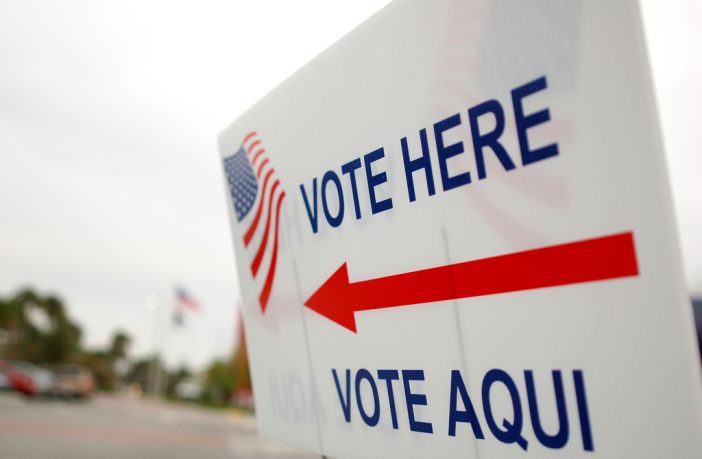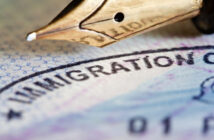As Americans head to the polls to vote this year, new evidence from a variety of sources shows that a number of ineligible non-citizens, including illegal aliens, will be voting as well. (North Carolina State Board of Elections, Oct. 24, 2014; PJmedia.com, Oct. 29, 2014; Washington Post, Oct. 24, 2014)
In North Carolina, the State Board of Elections announced on October 24 that it had completed an audit of more than 10,000 registered voters with questionable citizenship status. Using data from the North Carolina Division of Motor Vehicles and the Department of Homeland Security, elections officials flagged 1,415 registered voters as likely non-citizens. (North Carolina State Board of Elections Press Release, Oct. 24, 2014) Although some of the non-citizens had become citizens since getting a driver’s license, over a hundred of them were DACA recipients, and thus still illegal aliens. (Foxnews.com, Nov. 1, 2014; Winston-Salem Journal, Oct. 21, 2014)
Meanwhile, in Maryland, an election watchdog group has sued the state of Maryland alleging that it has discovered on-going fraudulent voting by non-citizens in Frederick County. (Complaint, Oct. 24, 2014; PJmedia.com, Oct. 29, 2014) The group, the Virginia Voter’s Alliance, alleges that it sent FOIA requests to multiple Maryland counties, and as a result of examining those documents, found individuals who were registered to vote that in past years had also been disqualified from jury service on the basis of non-citizenship. (Id.) It sought to enjoin the county from continuing to allow admitted non-citizens from maintaining voter registration in Maryland. (Id.)
Finally, a new study in the Journal of Electoral Studies suggests non-citizen voting is in fact a nation-wide problem. (Washington Post, Oct. 24, 2014; (Electoral Studies, Dec. 2014) Through an analysis of data from the Cooperative Congressional Election Study, a survey of over 32,000 people in 2008 and 55,000 people in 2010, the authors of the study concluded that 6.4 percent of non-citizens voted in 2008 and 2.2 percent of non-citizens voted in 2010. (Id.) They also concluded that the numbers of non-citizens voting, as well as their voting patterns, were enough to decide at least the very close Minnesota Senate election of 2008. (Id.) According to the authors, their study is the first to use survey data to estimate non-citizen voting, rather than relying on incidents of detected vote fraud. (Washington Post, Nov. 2, 2014) As such, they point out, they are better able to demonstrate the true scope of non-citizen voting than lower estimates in the past that caught only those detected and prosecuted, generally a much lower number.
Voting in an election for a federal office by a non-citizen is a federal crime, with punishment of a fine or up to a year in prison. (See 18 U.S.C. § 611) Generally, states also prohibit non-citizens from voting in state and local elections. (Electoral Studies, Dec. 2014) Nevertheless, while non-citizens may be criminally prosecuted for voting, the chances of such prosecution are generally remote, and there are few safeguards preventing non-citizens from registering to vote. (See Heritage Foundation Primer on Motor Voter, Sept. 25, 2014)
One of the main reasons non-citizens become registered to vote is The Motor Voter Act. This law, signed by President Clinton in 1993, requires states to offer residents the ability to register to vote when they obtain a driver’s license or sign up for state benefits. (Id. 42 U.S.C. § 1973gg et seq. Foxnews.com, Nov. 1, 2014) They generally need only check a box that indicates they are a U.S. citizen, and state department of motor vehicle officials generally do not authenticate their claim of citizenship. (Id.) Once registered, they can vote as easily as any legally registered voter. And, when a state gives driver’s licenses to illegal aliens, which many states have recently done, it is giving them the ability to easily register to vote as well. (See FAIR Legislative Update, Apr. 2, 2014)
Despite the ease by which non-citizens can register to vote, open borders advocacy groups have long insisted that the problem of non-citizen voter fraud is essentially nonexistent and thus steps taken to restore integrity to the voting roles are unnecessary and discriminatory. (See, for instance, immigrationpolicy.org, Jul. 13, 2012) However in a major decision handed down in 2008, the United States Supreme Court upheld Indiana’s voter-ID law, declaring that the state had a legitimate interest in improving election procedures and deterring fraud. (Crawford v. Marion County Election Board, 553 U.S. 181 (2008) And while the numbers of non-citizens voting may be small compared to the number of registered voters in a given district, as the Journal of Electoral Studies reports, in close races, such votes could make the difference. (Electoral Studies, Dec. 2014)





2 Comments
this is bull politicians have let this happen.
Yes Julie
Its not really wide-spread or a large percentage of the voters….but its terrifying to know this is happening on real close elections….